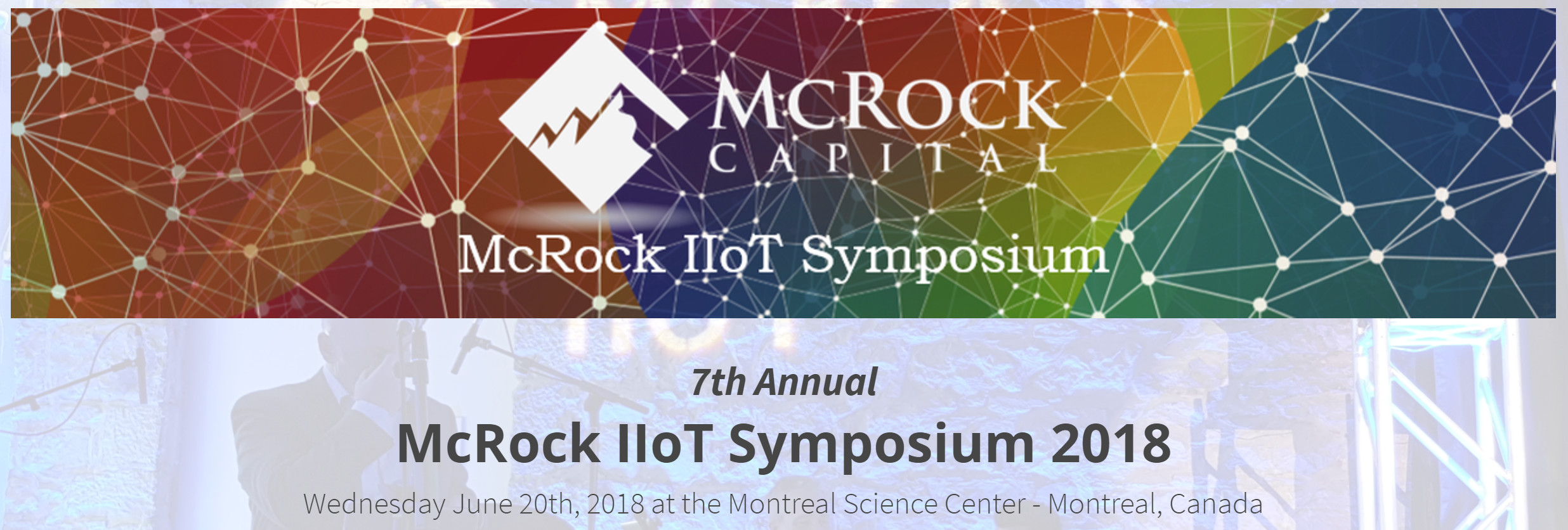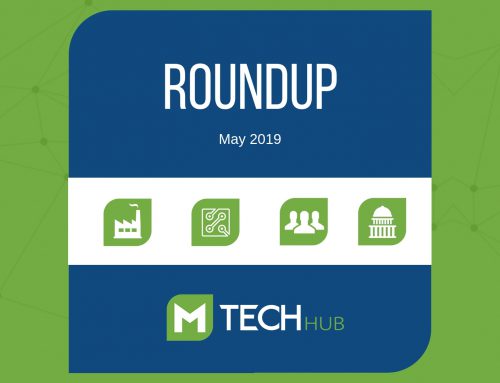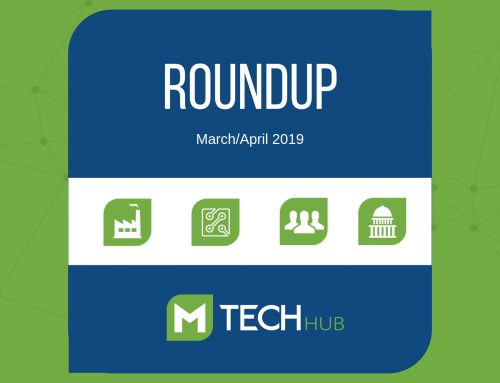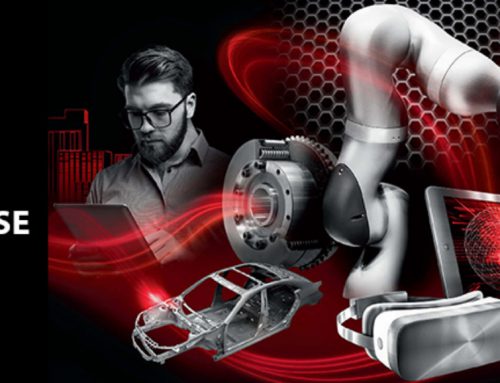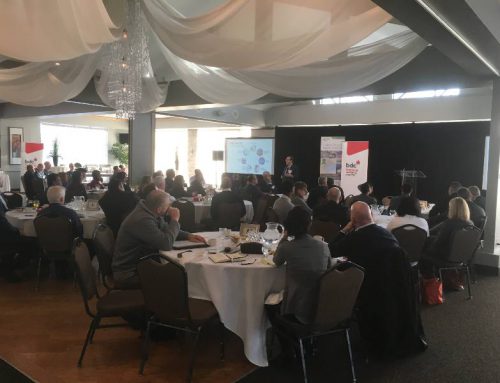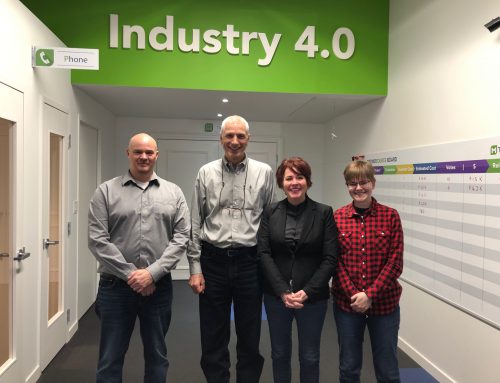In June, we attended the 7th Annual McRock Capital IIot Symposium in beautiful old Montreal. This event brings together the entrepreneurs, corporations and investors who are driving the digital industrial revolution in Canada and around the World.
Throughout the event, one theme emerged: The shift to smart will require a shift in culture.
Maciej Kranz, VP Corporate Strategic Innovation for Cisco and best-selling author of ‘Building the Internet of Things’ followed with some recent successes in IoT implementations and the discoveries that occurred. He proposes that in order to truly take advantage of all that the next revolution can offer, business must look at first, improving existing processes and second, finding new value through new value propositions, business models and markets.
The path to these new opportunities will require the change to a co-economy, where relationships blend from vendor/client to problem/solution. Until businesses can embrace the ideas of cooperation, partnerships and inclusive co-innovation, the IoT revolution will take longer to be adopted and for businesses to realize the potential of what it can offer.
View Maciej’s full deck:
IIoT adoption is taking longer than expected because there are no examples yet of large scale ROI in any vertical – and ROI is being affected by the failure to shift to the co-economy mindset/model.
This message was reiterated in a panel discussion around The Smart City and Digital Urbanization – a mirror for what a Smart Factory can be. The panel, including Kurtis McBride, Co-founder & CEO of Miovision, who has implemented smart sensors for several Towns and Cities, including locally with The Town of Milton and Ignasi Vilajosana, Co-founder & CEO of WorldSensing currently working with cities around the World, including a mobility management solution in the City of Bogota, reiterated the need for partnerships and cooperation to develop robust solutions.
Smart cities, like smart factories, require a strong and diverse ecosystem that includes ALL stakeholders. Current siloed approaches are stalling adoptions and implementation. There needs to be a simple way for all invested parties to come together for overall solution development. The base must be broader. And the economic model needs to be challenged – what line on your P&L is being impacted by a lack of accurate, actionable data? Who else’s P&L is being affected throughout the supply chain?
“The future is already here. It’s just not evenly distributed yet.”
William Gibson
A panel on autonomous systems, featuring Peter Zornio, CTO Automated Systems with Emerson, Brian Lowry, Investment Manager for Caterpillar Ventures, Allan Benchetrit, Founder & CEO of Algolux and Jason Nolte, Investment Manager for GM Ventures added to the theme. Partnering in this space is very important – an autonomous car is like a factory or a city – it needs an ecosystem and available integrations. They identified two main barriers to autonomous systems – Trust and Safety/Security. These barriers are present across the spectrum for IoT solutions.
A presentation from Antonio Pietri, President and CEO at AspenTech, who are becoming the world leaders in asset optimization software for capital intensive industries, outlined how they are making advances through the acquisition of technology companies and a focus on solutions that are predictive and prescriptive and provide actionable insights. Their goal is to reduce the estimated $1.4 trillion in losses due to unplanned downtime reported by the National Association of Manufacturers in 2016.
Markus Solibieda, Director for BASF Ventures shared insights into how the largest chemical producer in the world is actively seeking new digital business models in chemical manufacturing, beginning with their first investment in a Swiss startup called EcoRobotix, developing robots with autonomous navigation and spray application capabilities that operate with real time weed recognition tools using Artificial Intelligence.
A panel on artificial intelligence spoke to the culture shift required as well. In order to continue to pursue AI, there is a great need for data – crazy, staggering amounts of data from private enterprise and government sources who are willing to share, even though it is not part of their current models.
In the final presentation of the day, Shawn Rogers, senior Director of Analytics Strategy at TIBCO, an integrations and analytics software company, made a compelling case that the Digital Economy is shifting to an Algorithm Economy. With an ‘avalanche’ of data being collected and still available for collection, the challenge will be in how quickly that data can be transformed into action.
Most interesting was the idea of concentric analytics to improve efficiency. The current model is an outside to centre approach – like a stone thrown into a lake, data is collected from the action at the beginning of the process to the outer edge of the ripple, analyzed at that point and then adjustments are sent back to the centre and the cycle repeats. Concentric analytics looks at every ripple from the centre action, producing data with analysis and making adjustments at the edge of every individual ripple.
Check out the whole presentation, including some IoT implementation stories and an interesting nod to the power of algorithms gone awry – the story of an incident on Amazon where a book on the Making of a Fly was selling for $23.6 Million because of competing algorithms to price match competitors.
The next wave will require a shift of mindsets, models and modes of operation. An ecosystem, like the one we are creating with MTechHub, that allows for the easy transfer and exchange of information and ideas and an approach that includes a wider variety of sources and diverse resources. Distributed ownership and accountability and innovative partnerships, especially between industry and technology providers, will define the limits of where we can go with Industry 4.0.

